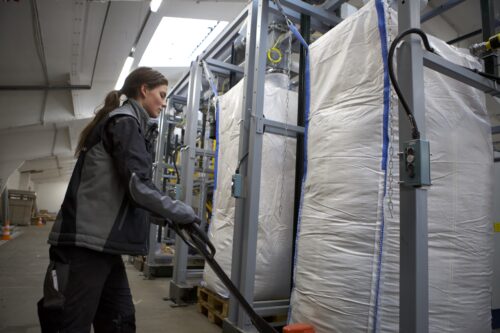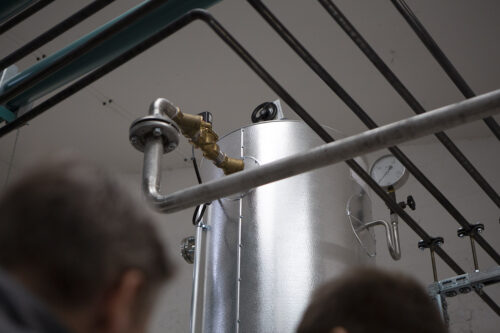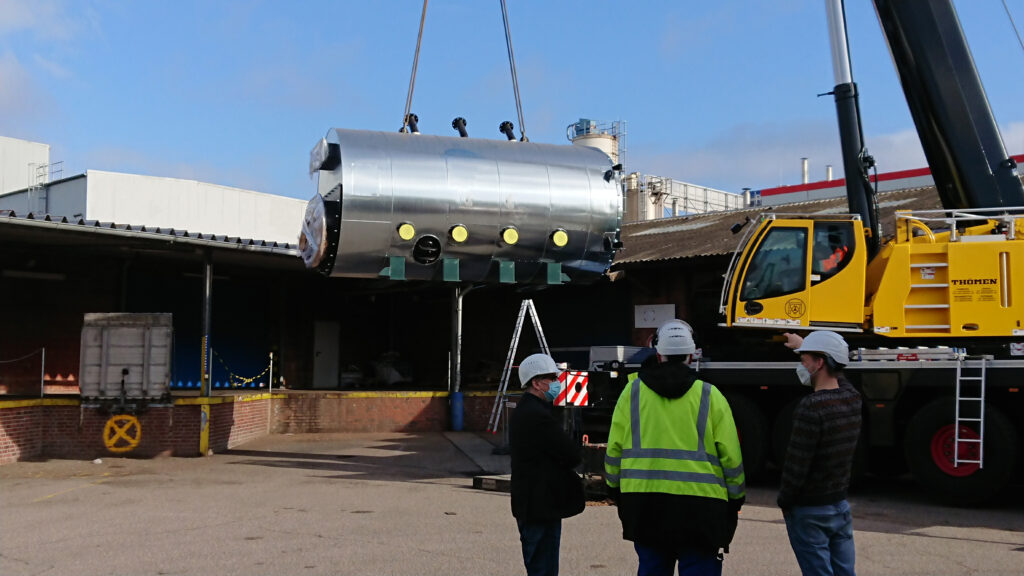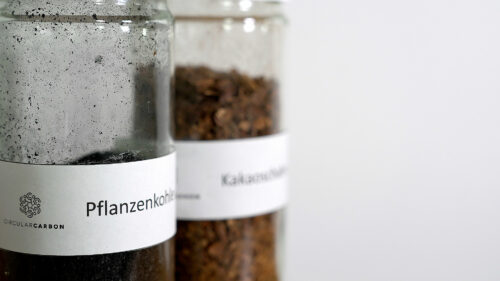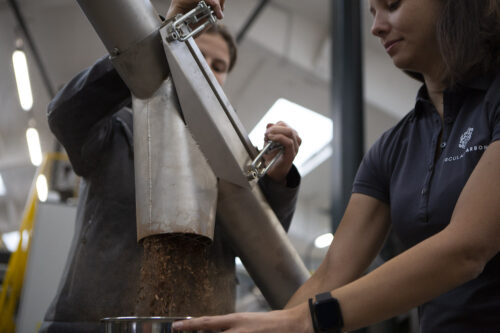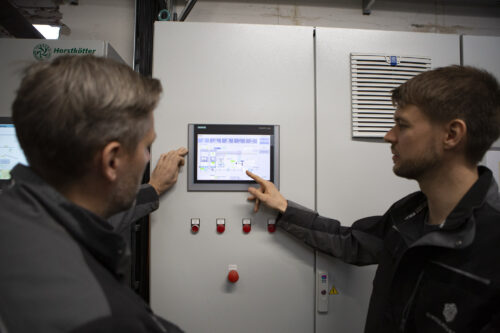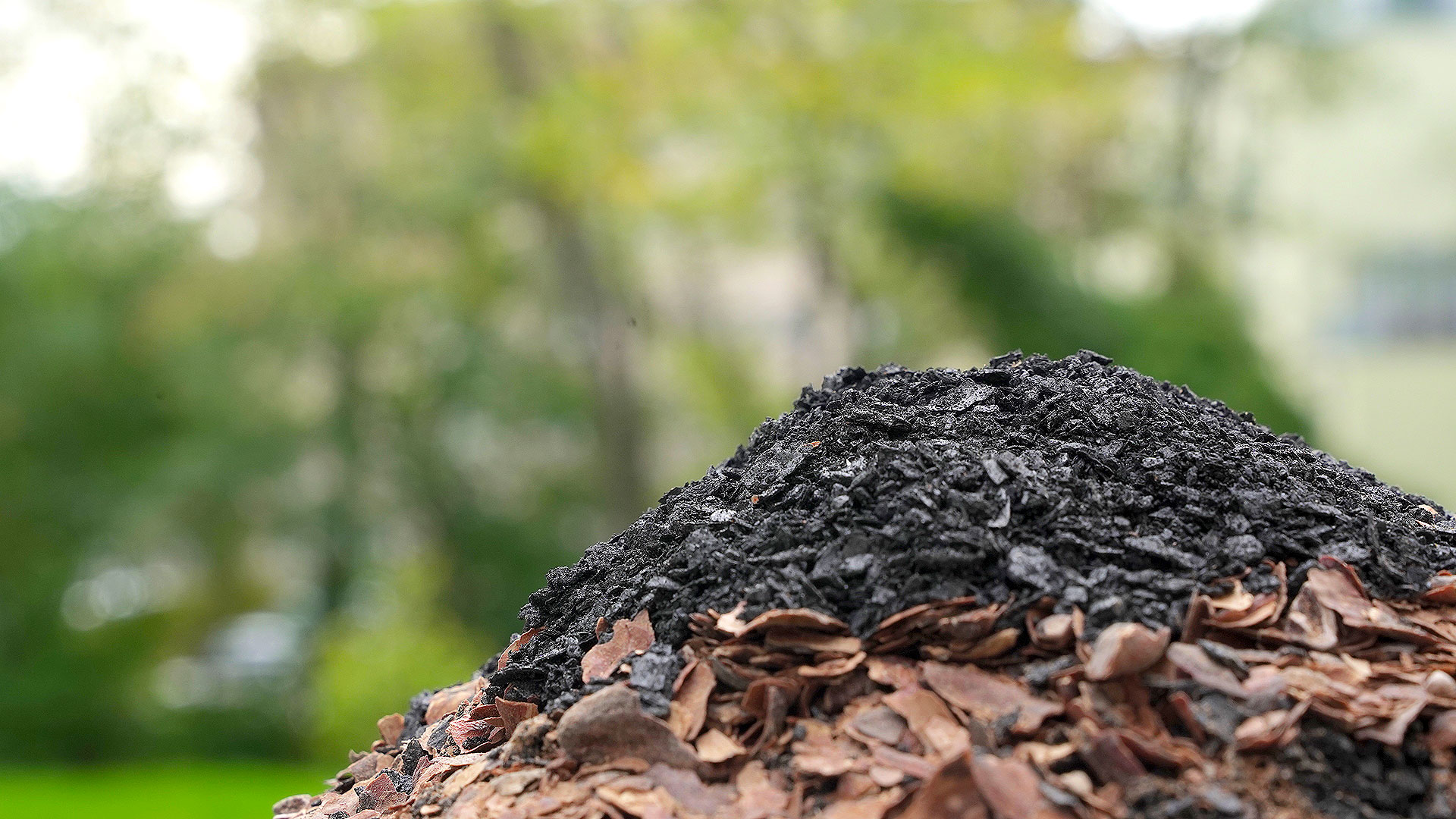
Production of biochar
from organic waste
We only ever use homogeneous input materials to ensure a consistently high-quality biochar product.
Production of biochar from organic waste
Carbonisation is a thermo-chemical conversion process for organic waste. It reduces CO2 emissions and produces renewable energy.
The output of the carbonisation process is biochar – a mineral-rich, carbonaceous and porous material with a high capacity for water retention and absorption and with high conductivity.
The specific characteristics of biochar products include their high conductivity and absorption capacity as well as a wide range of trace elements and minerals.
Biochar works at the microbial level. The production process and parameters are key for ensuring a consistent quality and effectiveness of our biochar.
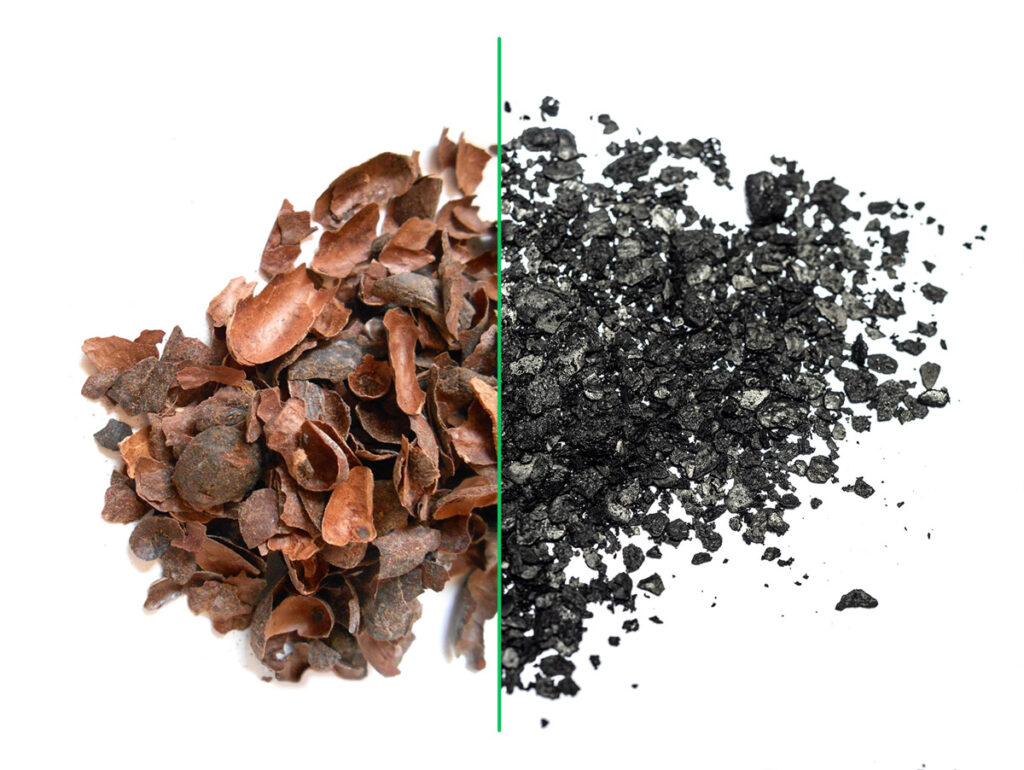
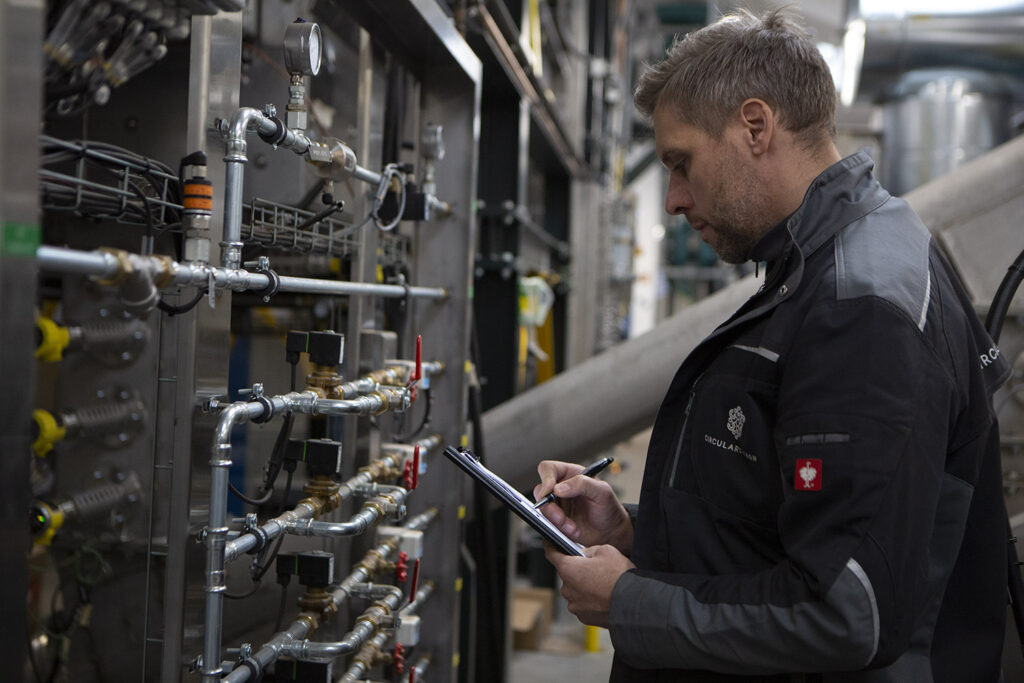
The Circular Carbon plant
Our plant enables use to determine the specific properties of the biochar and to produce large quantities.
We only ever use homogeneous input materials to ensure a consistently high-quality biochar product.
Find out more
In the cocoa industry, for example, only cocoa shells are used for the production of biochar.
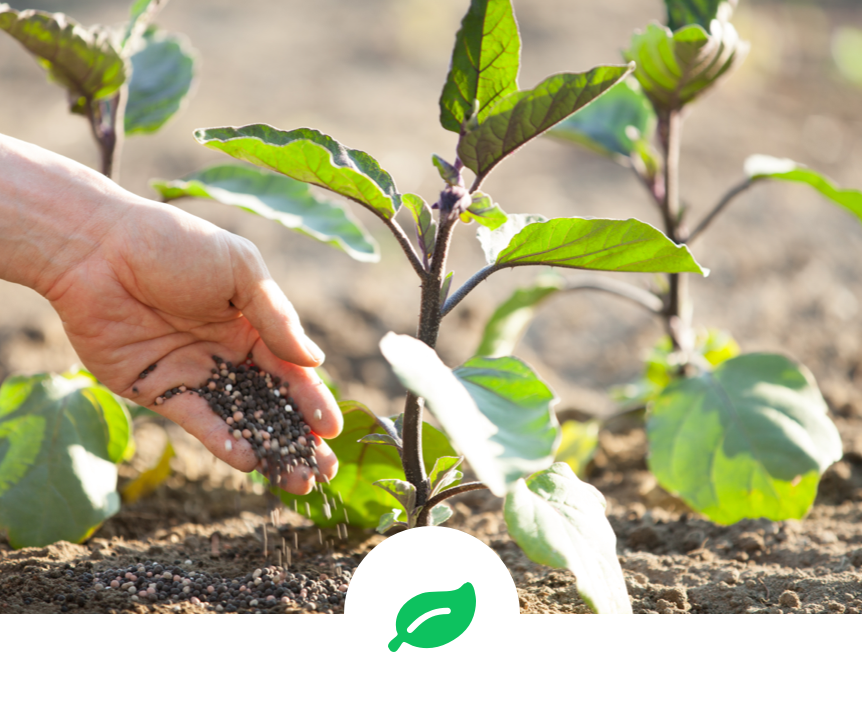
Biochar – an all-rounder
Biochar is a fine-grain, highly porous material consisting largely of carbon and minerals. It acts as a carrier for microorganisms and improves the cation exchange capacity.
Find out more
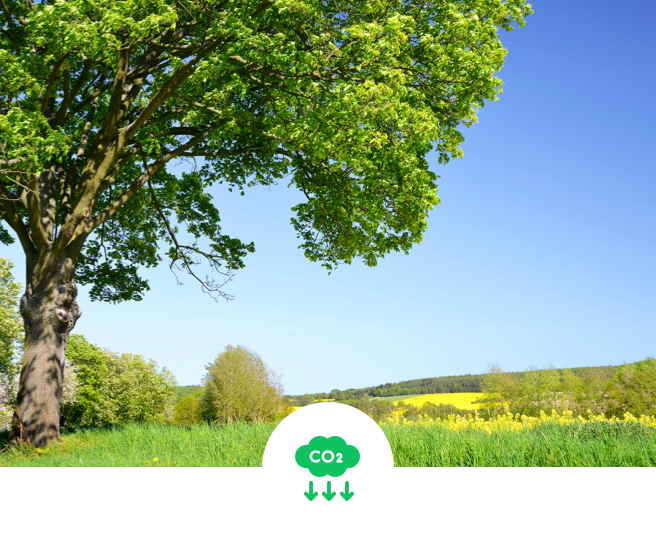
Sequestering and reducing CO2
The circular carbon cycle closes open material flows, reduces CO2 emissions and captures CO2 from the atmosphere. At the same time, we supply our customers with climate-neutral energy.
Find out more
